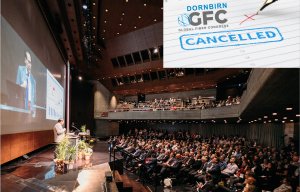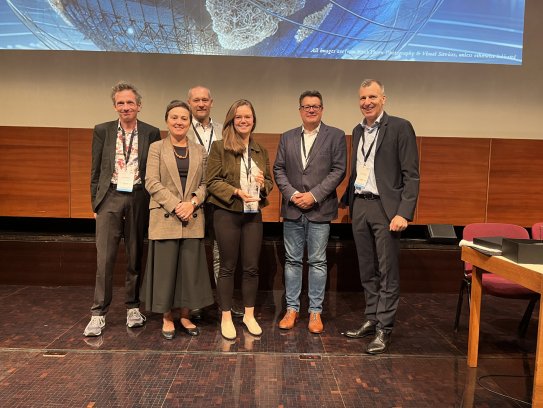
Dornbirn-GFC 2020 cancelled
Electrified hydrolysis recovers raw materials in virgin-like quality, ready to be reused in the production of new textiles.

15th September 2025
Innovation in Textiles
|
Dornbirn, Austria
Re.solution, a spin-off company from RWTH Aachen University in Germany, has claimed the first Dornbirn Innovation Prize.
A very strong short-list of eight companies selected by a panel of experts presented their developments during last week’s 64th Dornbirn-GFC conference in Austria (September 10-12), with delegates then casting their votes to decide the winner.
Re.solution has developed a proprietary process for turning polyester textile waste – both post-industrial and post-consumer – back into virgin quality new monomers to be used by the fibre manufacturers.
It is based on electrified hydrolysis and managing director Amrei Becker explained it can achieve significant savings in chemicals and water usage compared to alternative monomer recovery processes.
The technology also has the potential to be easily scaled up, and re.solution is currently establishing a semi-industrial plant which uses renewable energy with an output of between 10-50kg per hour and the potential to be fully industrialised for an annual output of 30,000 tons.
The process has been designed to handle mixed fibre textiles and is robust enough to deal with the impurities commonly found in real-world waste.
Also receiving a high percentage of votes were Fibers365, based in Lenninger, Germany, and a second RWTH Aachen spin off, SA-Dynamics
Fibers365 is the developer of SteamFiber technology which enables the creation of chemical-free non-wood cellulose pulp and biopolymers from annual plants. The basic SteamFiber 10 system can produce 5,000 tons of cellulose pulp and 500 tons of lignin and is highly modular.
SA-Dynamics is meanwhile developing aerogel fibres from cellulose, initially targeting the apparel industry (a prototype running vest has been developed with adidas) the mobility markets (aerospace applications are being explored with the European Space Agency) and once at industrial scale, civil engineering.
Aerogels are conventionally made from silica and supplied as powders, making them difficult to process in textile applications, as well as prohibitively expensive. Inexpensive cellulose aerogel fibres – with inner surfaces of 80% air – therefore promise to be game changing, especially in insulation applications.

Business intelligence for the fibre, textiles and apparel industries: technologies, innovations, markets, investments, trade policy, sourcing, strategy...
Find out more